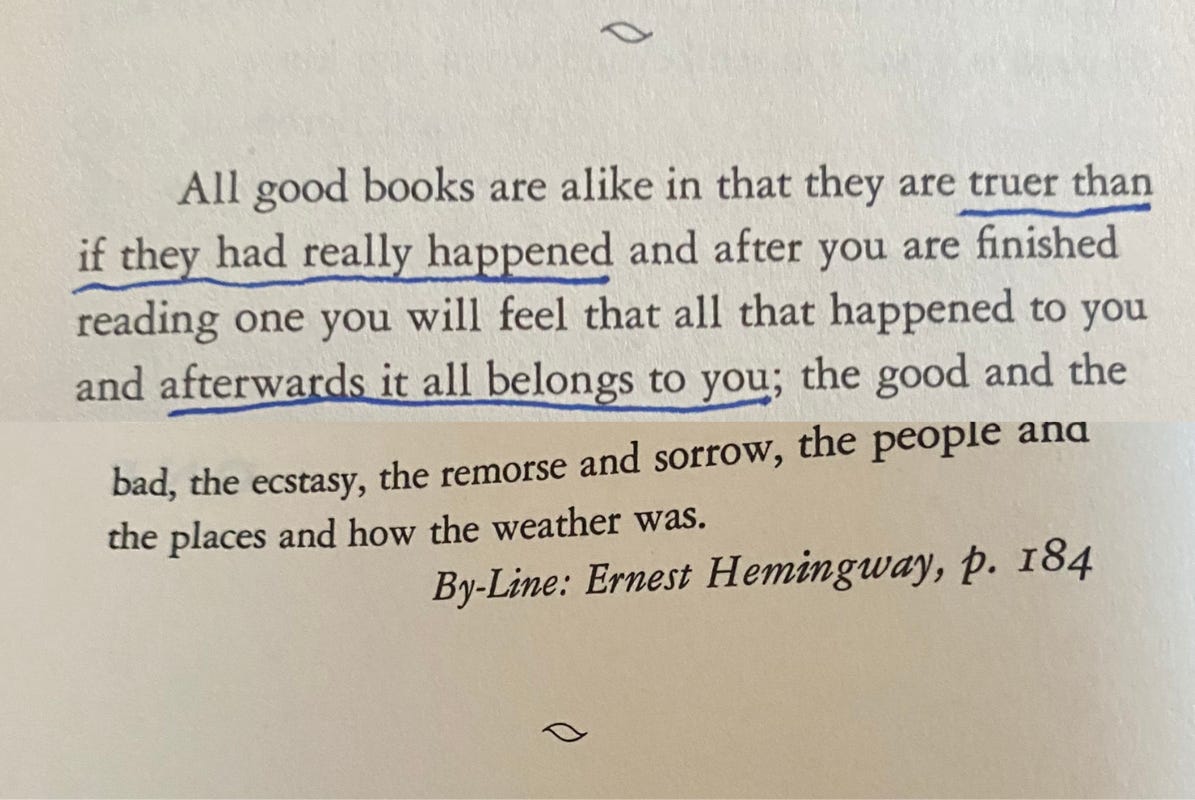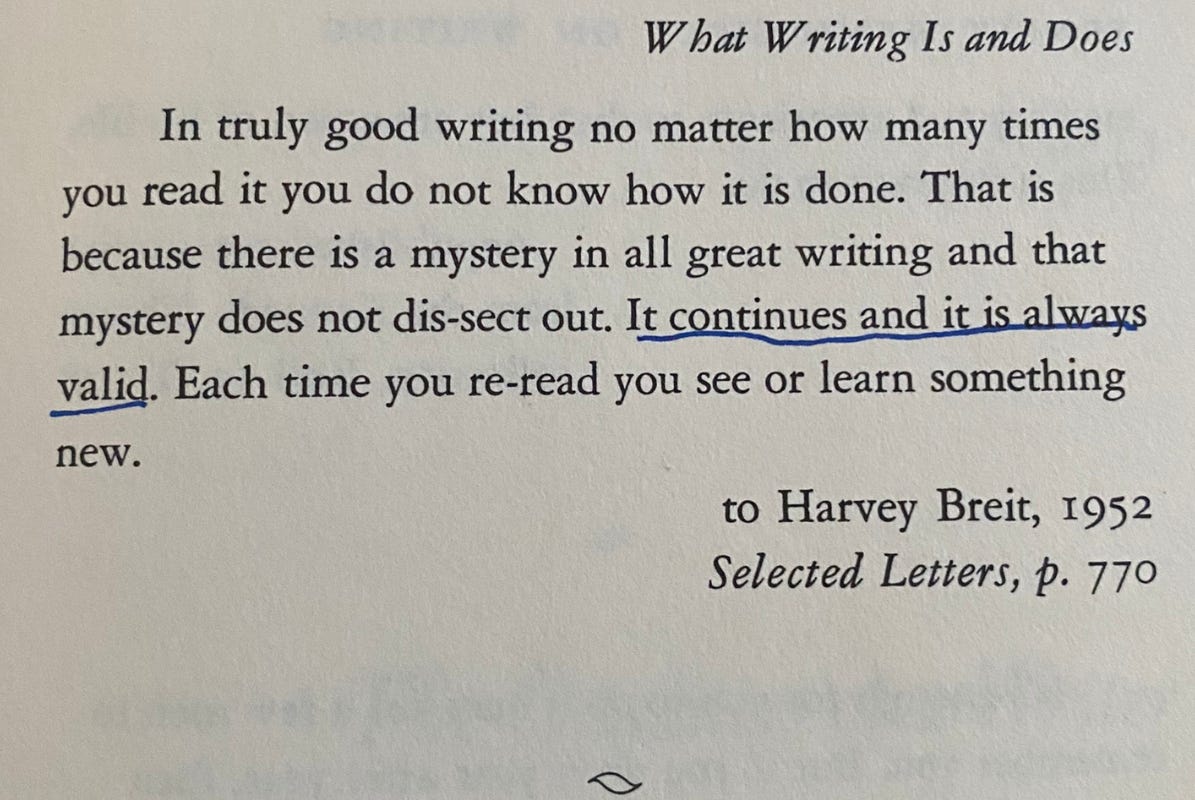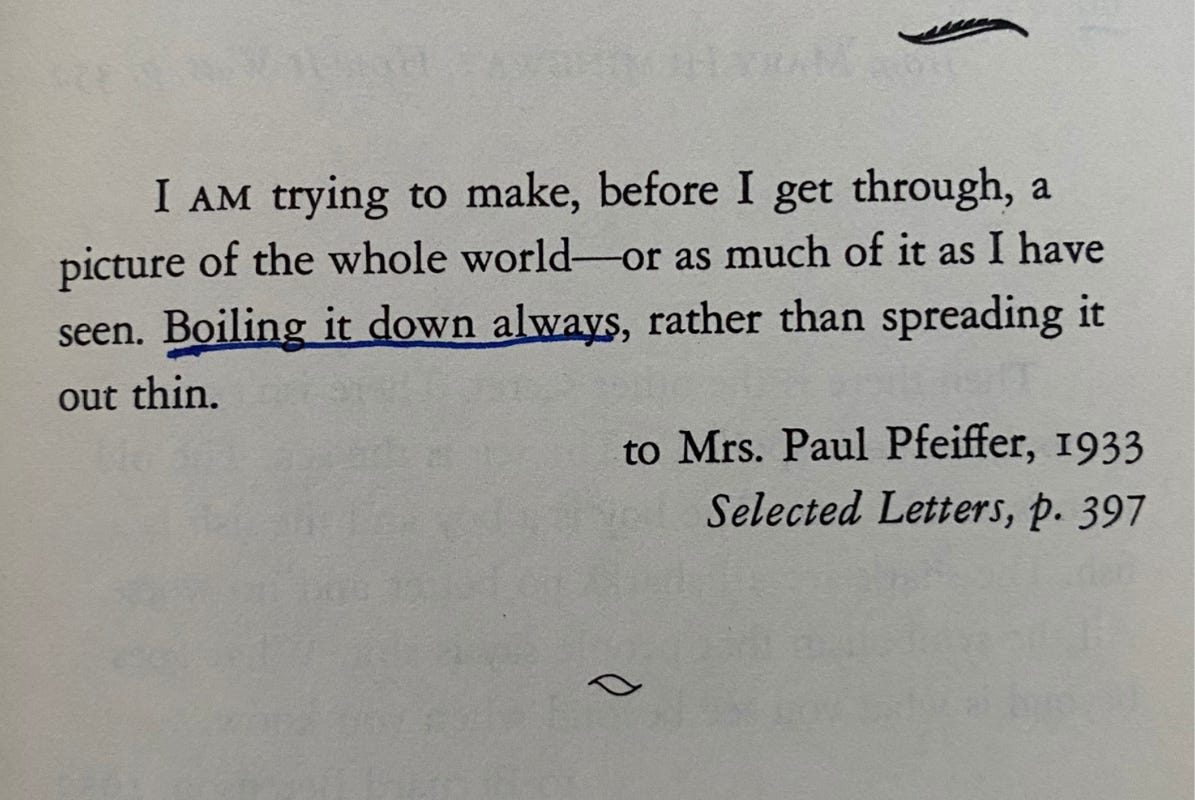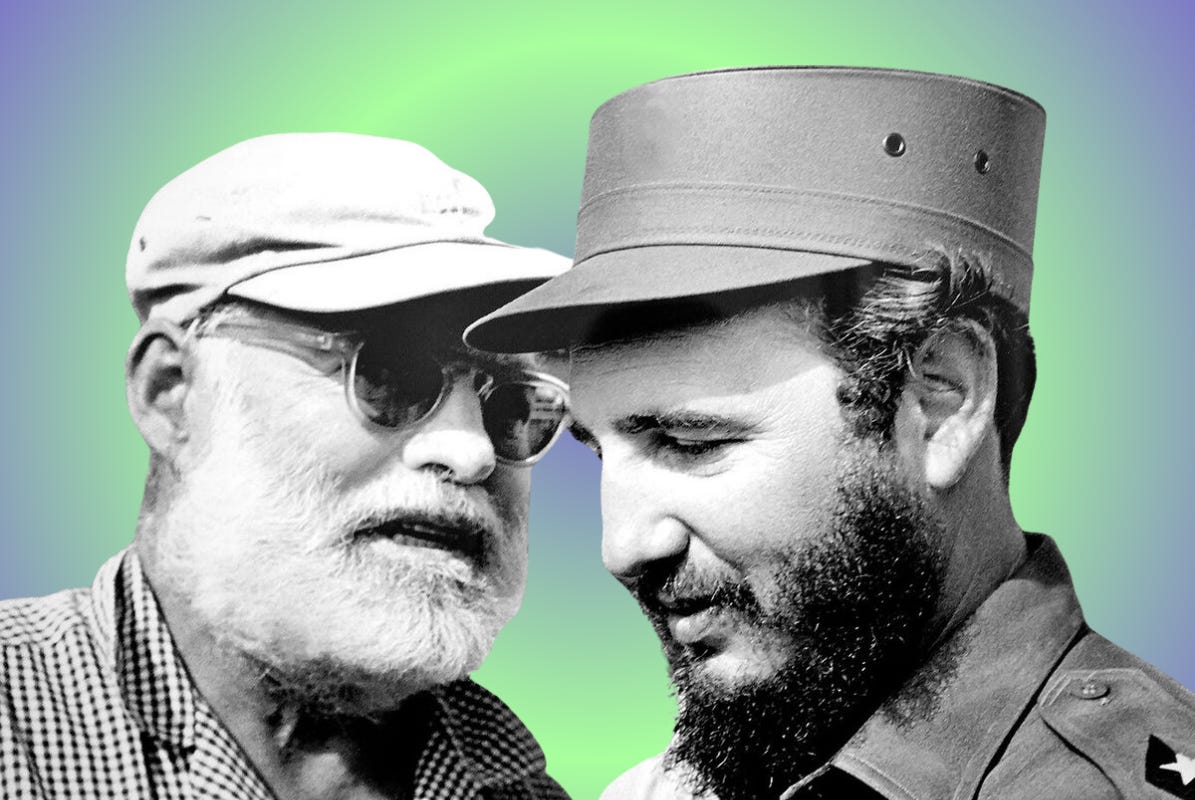Write 'good,' not 'well' | On Reading "On Writing" #1
Join me as I pontificate about Hemingway’s writerly advice — and try to adapt it to a modern context.
A casual indifference or a vote of supreme confidence?
When I turned 17 my dad gave me the only gift he’s given me as an adult — a used copy of Ernest Hemingway’s “On Writing,” an anthology of excerpts from Hemingway’s novels and personal correspondence in which he describes the writing process, his writing style, how to write, how to not write, and even how to live. Given that I’m engaged in a deeply entrenched battle with a novel, and Hemingway’s advice for that — to just “finish the damn thing” — really resonated with me, I figured that parsing through some of the advice laid out by Hemingway may offer some other aspiring and inspiring authors a little more creative spark.
I initially chalked my dad’s gift up to the fact that he had (and has since) not cared enough to learn anything about me other than the one fact. Now? I interpret it as the most supreme vote of confidence. The only thing he knew about me was that I want to be a writer. Despite the baggage attached to that relationship, my confidence is bolstered by that. So, think of this also as me endorsing your ability and right to write — and passing along some of the tips that I found useful from the great master Hemingway.
The Old Man and the Me
Before we go further, I would like to address some of the voices in the back complaining about reading an old white man. In response: Fair! My incredibly whitewashed English literature studies were limited in their breath — save for our ‘diversity requirement’ classes. The two classes I took to fulfill my good white person quota were “Harlem Renaissance Literature” and “Native American Literature,” both of which significantly changed my life. Reading outside of the canon is now my favorite thing to do. After all, even Marx falls outside the majority of western canon. I mean, in undergrad, one of my professors even taught us historical materialism without mentioning Marx once. In order to truly thrive, you must seek out knowledge from everywhere!
Undisputed
My focus falls on Hemingway because of the unique political economy that colors much of his work, as well as his undisputed GOAT status. If you don’t have the time to read For Whom the Bell Tolls, you should really consider reading “The Short Happy Life of Francis Macomber” or “Hills like White Elephants” — the latter of which I encountered during high school, learning that, indeed, women get abortions, something that I’d previously only seen or heard discussed in shrill tones on cable news. Depending on your tastes, it may not suit you, and that’s fine. There’s plenty in the world to remind you why war is bad. Hemingway’s not essential — but he is informative. He coupled a brilliant economy of voice with a surprisingly flexible wiring outlook — cementing himself as one of the most influential writers of the American age, whatever that ultimately means.
Writing should be…
Since there is a lot of good advice, and I don’t want these On Reading “On Writing” essays to be too long in the future, I will only be looking at between 2 and 4 excerpts per entry in this series. So, without further ado, here are some pieces of wisdom from one of the goats.
#1
Larry Phillips’ collection of excerpts is organized thematically — chapter 1 is called “What Writing Is and Does.” These three quotes come from this chapter. The first one is as follows:

This is more of an abstract thought, but Hemingway is clearly expressing the exact same tendency that #BookTok users do when they say they can’t get the stories1 out of their head after they read them. Good to know Mr. Hemingway is a victim of the same kind of parasociality.
Hemingway’s insistence on “truth” throughout the book was initially somewhat off-putting to a budding fantasy author like myself, but I have come to interpret that with a slightly different meaning, instead thinking about the “applicability” or “authenticity” of the work. Does it represent an author’s understanding of how society — any society — or humanity — any part of humanity — works? If it’s not about that, then what does it do to relate some kind of “truth” that is realizable or applicable. While not all work needs to have this specific “truth”-seeking urge, I do believe that any politically effective work needs that tendency in order to advance humanity’s party line.
#2
The next piece of advice for today’s entry references the kind of writing that most authors would consider the kind of writing they’d strive for:

If someone would say the above about one of my works, I’d feel completely satisfied with myself. But, given that the above was stated in 1952, during one of the most emotionally-fraying time periods of world history -- the Cold War -- Hemingway was speaking to a larger desire to persist reacting directly to the threat of total and utter desolation due to nuclear war. His desire is not at all out of place in any other era, but it’s more significant because of the time period.
In terms of his advice, it’s clear that he really believes that there are eternal truths or, at least, writing is the closest thing to capturing truth in a semi-permanent form. For Hemingway, writing should continually seek truth and record that truth.
#3
Hemingway’s last piece of advice for today is his philosophy of linguistic representation:

Here Hemingway describes the type of writing that most people know him for: describing the world in great detail, sometimes to the detriment of continued modern readership. However, Hemingway was responding to two important factors: rising literacy rates in America and the ‘first-world’ and the decline of bourgeois writing prestige after World War II. His writing is gritty and realistic, perfect for the growing readership in America; his writing is about how bad war is and how much it sucks to be a soldier, perfect for the now-educated (GI bill) former soldiers beginning to resent the imperial U.S. machine that was beginning to take shape. His writing is as much a product of the time as he himself.
Conclusions
What can we take from these pieces of advice? According to Hemingway:
Writing should be ‘true,’ in the sense that it is believable and the characters make enough sense to be trusted as ‘human.’
Good writing is always valid; good writing captures some kind of essential truth
When writing, you need to ‘boil down’ your experience and perceptions, not ‘spread [them] thin.’
These are all really decent tips for writers, as long as one does not fall into the “truth trap,” or feeling like realism or historical fiction are the only viable types of writing. If you want to write experimental fantasy, you should write that. As long as it comes from a place of your ‘truth,’ it will be strong enough to stand on its own. But, always remember that there are political echoings to all of you work, and that being conscious and controlled about your portrayals and depictions is as important as writing them well. Just keep in mind, the goal should not be to write something well, it should be to write something good.
Until next time,
In solidarity,
-hanson
read: smut



